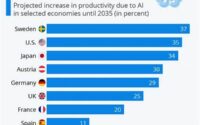Digital Courses In Finance Top Global Sales 2025
H1: Digital Courses in Finance Top Global Sales 2025
Read More : Automatic Sales Funnels That Run Without You
In the dynamic world of finance, staying ahead of the curve is crucial. As financial markets continue to evolve, so does the need for financial professionals to continuously update their knowledge and skills. Enter digital courses in finance—a growing trend that experts say will top global sales by 2025. Imagine being able to learn about complex financial theories from the comfort of your living room while sipping coffee. Sounds too good to be true? Well, online finance courses make this a reality. They offer the flexibility, convenience, and the latest industry knowledge that’s not only accessible but also engaging and interactive. Thanks to cutting-edge technology, acquiring new skills is as simple as clicking a button. But what makes digital courses in finance so captivating that they’re projected to dominate global sales in just a few years?
Digital courses have democratized education, providing access to top-tier financial knowledge and expertise that was once confined to the walls of prestigious universities. The scalability and reach of these courses mean that anyone, anywhere in the world, can learn from the best instructors—many of whom have years of industry experience. As society becomes more tech-savvy and driven by convenience, traditional classroom settings are becoming less appealing. The world of finance, often seen as complex and intimidating, is being made accessible and enjoyable through these innovative courses.
Another alluring aspect of digital courses in finance is their ever-evolving content. Because they’re online, course material can be updated quickly to reflect the latest trends and changes in the finance sector. From understanding cryptocurrency and blockchain technology to mastering the intricacies of stock market trading, these courses cater to a wide range of interests and skill levels. Not only are they designed to educate, but also to inspire and empower learners to take control of their financial futures.
Companies and institutions are beginning to take notice of the potential that these digital courses hold. By 2025, the demand for such courses is expected to skyrocket, with projections indicating that digital courses in finance will top global sales. This trend highlights a shift in how education is consumed and valued, and underscores the importance of adapting to new learning methods. As the finance industry continues to grow and change at a rapid pace, digital courses offer a viable solution for those wishing to stay relevant and compete in an increasingly competitive market.
H2: The Rise of Digital Learning in Finance—Introduction to the Future of Finance Learning
In today’s rapidly changing world, the ability to swiftly adapt and acquire new skills is no longer a luxury, but a necessity. As the finance industry faces technological disruptions and shifts in economic paradigms, professionals find themselves at a crossroads. The good news? Online education is here to rescue them from becoming obsolete. Enter “digital courses in finance top global sales 2025,” a phrase that encapsulates the promise of a new era of learning.
As we approach 2025, the predicted surge in sales for digital finance courses paints a promising picture for both aspiring students and seasoned professionals alike. At the heart of this digital evolution is the promise of accessibility and flexibility. The idea of being able to log onto a platform and instantly access an array of courses tailored to specific needs is nothing short of revolutionary. It’s like having the world of finance at your fingertips, without the hassle of commuting or sticking to rigid schedules.
H2: Why Everyone’s Talking About It
The buzz around digital courses in finance is not just hype—it’s a reflection of their efficacy. Online platforms such as Coursera, edX, and others offer meticulously designed courses that cater to various learning styles and needs. The courses are often led by industry experts, ensuring that the content is both current and applicable. Users frequently report how they’ve leveraged these courses to achieve tangible results, whether it’s securing a promotion, changing career paths, or mastering a new financial tool.
Financial institutions aren’t shying away from this trend either. With increasing digitalization, they recognize the value of having a workforce that’s equipped with cutting-edge knowledge. Many companies now include digital course certifications in their hiring criteria, adding another layer of validation to these programs. As these courses continue to innovate, incorporating AI-driven insights and personalized learning paths, they are set to redefine the traditional educational landscape.
H3: Transforming Traditional Learning
While traditional education systems are still valued for their comprehensive curriculums, they often lack the agility to adapt to rapid changes in the finance sector. This is where digital courses shine. They not only transform learning by making it more accessible but also by enhancing it with interactive tools and real-time updates. Think of it as having a private tutor who’s always in tune with the latest finance trends and ready to help you navigate the labyrinth of financial knowledge. Whether you’re a seasoned professional or a fresh graduate, there’s a digital finance course out there waiting to propel you to new career heights.
So, if you’re contemplating your next move in the world of finance, why not explore these digital avenues? With courses that cater to every need and learning style, the future of finance is literally at your fingertips. Dive into this exciting world and discover how digital courses in finance might just be the ticket to your next big career leap.
Six Key Aspects of Digital Courses in Finance
—Discussion on the Significance of Digital Courses in Finance
In a world where digitalization has seeped into every aspect of life, education is no exception. One of the most significant developments in recent years is the rise of digital courses in finance. These courses are not just about transferring knowledge but transforming the way learners engage with the subject. At the core of this shift is the realization that traditional educational models may not suffice to keep up with the fast-paced world of finance. Through digital courses, learners gain the flexibility to study at their own pace, explore areas of interest-specific depth, and apply what they’ve learned in real-world scenarios almost instantaneously.
Moreover, as financial markets become more intertwined globally, understanding international finance norms and practices has become crucial. Digital courses bridge the geographical gap by allowing learners from different parts of the world to come together on one platform, share insights, and learn from each other’s experiences. This cross-pollination of ideas is invaluable in nurturing a new generation of finance professionals equipped to handle global economic challenges.
H2: Embracing a New Era of LearningH3: The Digital Revolution in Finance Education
The future of finance education is digital, and the transition is already underway. Digital courses are dismantling barriers to education, making learning not only more accessible but more equitable. They bring a sense of community and inclusivity that traditional methods often lack. As we move towards 2025, when digital courses in finance are expected to top global sales, the emphasis will be on creating a learner-centric model that prioritizes individual growth and professional development. This transformation signals a new era in finance education—one where learning is a lifelong journey rather than a finite destination.
Educators and institutions are gradually embracing this change, recognizing that digital courses can coexist with traditional methods, offering a hybrid model that’s richer and more diverse. This embrace of technology in education marks a paradigm shift that reflects our ongoing digital evolution. So why wait? Embark on your educational journey with digital finance courses and be part of a community that is shaping the future of finance one click at a time.
H2: Ten Points about Digital Courses in Finance
—Describing the Shift to Digital Learning in Finance
The landscape of finance education has undergone a seismic shift in recent years, heralding a new era defined by digital learning. As businesses across the globe have pivoted to online modes of operation, so too has education. Digital courses in finance have taken center stage, providing an innovative approach to learning that caters to modern needs. This transformation has been fueled by advancements in technology and shifts in societal attitudes towards learning and working—both of which have accelerated exponentially in recent years.
Gone are the days when finance education was confined to lecture halls and libraries. Today, it thrives in digital ecosystems designed to foster interactive, engaging, and practical learning experiences. Digital courses in finance employ state-of-the-art technology to deliver content that’s not only current but also deeply immersive. Students can participate in simulations, interact with AI-driven chatbots, and access up-to-the-minute data that keeps their learning relevant and exciting.
H2: How Digital Courses Are Redefining Financial EducationH3: The Impacts on Learners and Educators
For learners, the advantages of digital finance courses are manifold. They provide unparalleled flexibility, allowing individuals to juggle their learning with personal and professional commitments. The interactive nature of these courses keeps learners engaged, while the accessibility enables them to learn anytime, anywhere. Additionally, the customization options allow students to tailor their educational journey to their specific interests and career goals, making the learning experience more personal and effective.
For educators, digital courses open up new possibilities for reaching a broader audience and creating richer educational content. They can incorporate multimedia tools, real-time data analysis, and global perspectives that would be challenging to achieve in traditional settings. The use of digital platforms also allows educators to collect detailed insights into learner progress, enabling them to refine and adapt their teaching methods in real-time, thus vastly improving educational outcomes. As we move towards a future where digital courses in finance top global sales by 2025, the potential to expand and innovate within the domain of financial education is boundless.


